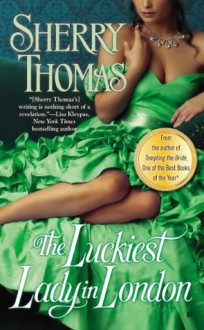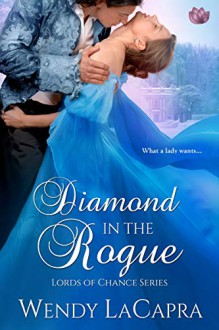With witty, unflinching morality, Austen portrays English middle-class life as the eighteenth century came to a close and the nineteenth century began. Austen's heroines find happiness in many forms, each of the novels is a story of love and marriage -- marriage for love, financial security and for social status.
In a publishing career that spanned less than ten years her work brought her little personal fame and only a few positive reviews during her lifetime. It wasn't until the 1940s that she became widely accepted in academia as a great English writer. The second half of the 20th century saw a proliferation of Austen scholarship and the emergence of a fan culture. Austen's works continue to influence the course of the novel even as they charm readers today."
_____________________________
REVIEW:
Notes on the Physical Book
The physical hardcover book is quite large, fat and heavy with a pretty dust jacket. The paper is bright white and of good quality. The text is standard sized, similar in size to the Oxford World's Classics series. The book includes an introduction by Jennifer C. Garlen, a section on the life and times of Jane Austen, reviews and notices, and a section of suggested reading.
Sense & Sensibility [3 stars]
Jane Austen originally published this novel, in 1811, anonymously - "By A Lady" appeared on the title page in place of the author's name. Sense and Sensibility is the coming of age story of Elinor and Marianne Dashwood; two sisters with different personalities (one sensible and one emotional) who each experience romance and heartbreak.
Personally, I found the main characters and the majority of the secondary characters to be overly nice and for the most part terribly bland and more similar than different. The majority of the men also appear overly spineless since they can't seem to do anything without mommy's permission or they might loose their inheritance [this is ridiculous - go find something useful to do and make your own fortune!] Despite all the courting drama and descriptions of hysterics in the novel, I found that the story lacked passion. It was all very proper and civilized... and bland. I also couldn't help the mental image of everyone going about their business with huge, florescent price tags stuck to their shirts.
I'm not quite sure why this is such a lauded classic, unless whole generations of impressionable girls were forced to read this and then inflicted it on their own children.
Pride & Prejudice [4 stars]
I enjoyed Pride and Prejudice more than Sense and Sensibility. The characters were more rounded/flawed, with more variety; the pacing a bit faster. This is a novel that revolves around relationships - not just romantic relationships, but those of friends, family and other acquantances. The novel also provides something of a social commentary in terms of the limits imposed on women inheriting property and class structure. There is also a great deal of humour in this novel that I missed on the first read. I do find the female obsession with marriage and marrying someone with lots of money rather irritating, but then that's what was required in that time period if you didn't want to end up destitute or dependant on some other relative. Context (social structure, society, time period etc) really is important with books like this, otherwise all the characters come off as shallow and the plot insipid. The book is not too long winded with some delightfully pithy clauses.
An interesting thing I noticed on the second read was that the reader initially only learns about Mr Darcy through the observations and dialogues of other people, so the reader essentially aquires the same prejudices against him that Elizabeth Bennet has.
NOTE: This is not a historical fiction novel. Jane Austen was writing novels about contemporary life (to her), especially the problems facing young women in her own social class (the country gentry).
Mansfield Park [1 star]
All Austen's novels are social commentaries in one way or another, and one could mine Mansfield Park for all sorts of things such as the marriage market, child abuse, child rearing practises (or lack therof), morality, family dynamics etc. But I found this novel to be rather dull, long-winded and superficial, with nothing substantial happening until the last third of the book. I can't say I was terribly impressed with the very convenient ending either. The majority of the characters were also rather flat, lacking depth, and essentially forgetable. Mrs Norris is terrifyingly devious and manipulative, and would have made a better villain assuming there was someone stronger (or at least more vocal) than Fanny to use as her favourite target. But Austen didn't write that book. She wrote the tedious Mansfield Park instead. Karma is a bitch, but it still doesn't make up for slogging through 400 pages.
Emma [2 stars]
This novel has a tedious beginning, but does pick up pace eventually. There is also too much "tell" and not enough "show". I can't say I was terribly impressed with this novel, but it was better than Mansfield Park. In someone else's hands, this might have been a comedy along the lines of Shakespeare's Much Ado About Nothing. But it's not. The plot was superficial and the main character highly annoying. The setting is too idyllic - the worst thing that happens is a bit of snow and a breeze [I'm beginning to wonder if a digression into the Paris sewer system would be preferable?]. Everyone is in perfect health except for the occasional sniffles.
Emma is a snobbish, entitled, arrogant, bored, callous, hypocritical, immature, know-it-all, busybody who has decided to play match-maker for all and sundry. And she somehow comes out of the whole affair with no consequences to herself. Miss Bates could have used less ink time - a lot of irrelevant babbling just doesn't do anything for me. Then again, a whole many pages could have been burned since the characters did nothing but babble about the proverbial weather or how "pleasant" and "agreeable" so-an-so was. All the characters are "agreeable"! Heaven forbid we have someone that is NOT agreeable and charming and nice!!! I'm assuming Mr Woodhouse has issues (agoraphobia and hypochondria comes to mind), if not, he is just plain silly. Mr Knightley is the only redeeming aspect of this book, until one of those very convenient WTF moments. Come to think of it, I liked Mr John Knightley a great deal as well. He didn't waste any words! I also have the impression Austen got bored of her own novels and just ended them in the most expedient manner possible to get a happily ever after.
NOTE: If this is supposed to be a social commentary of some sort, it is extremely narrow in focus (wealthy landed gentry) and highly idealized.
Northanger Abbey [3 stars]
This is the first of Jane Austen's novels to be completed, but it wasn't published until after her death, due to publisher vagaries. This is a coming of age story that is not as long, or as tedious, as some of Austen's other novels, but this one still has that chopped off, summarised in a few paragraphs, ending. Northanger Abbey is something of a parody of Gothic fiction, which (no doubt) the reader will get more out of, if they have previous read Gothic fiction.
Persuasion [3.5 stars]
Persuasion was completed 6 months before Austen's death, and published posthumously. This novel deals with old love rekindled and given a second chance, along with some scheming shenanigans by other interfering busy-bodies. This book is fairly short compared to the other novels and thus has less frivolous, long-winded descriptions of the furniture, the weather, clothing, the monetary worth of everyone and sundry, and how "agreeable" everyone is. This novel also has some "action" that does not involve tea parties. I enjoyed this book more than the others (except Pride and Prejudice).
Lady Susan [4 stars]






 Log in with Facebook
Log in with Facebook 










